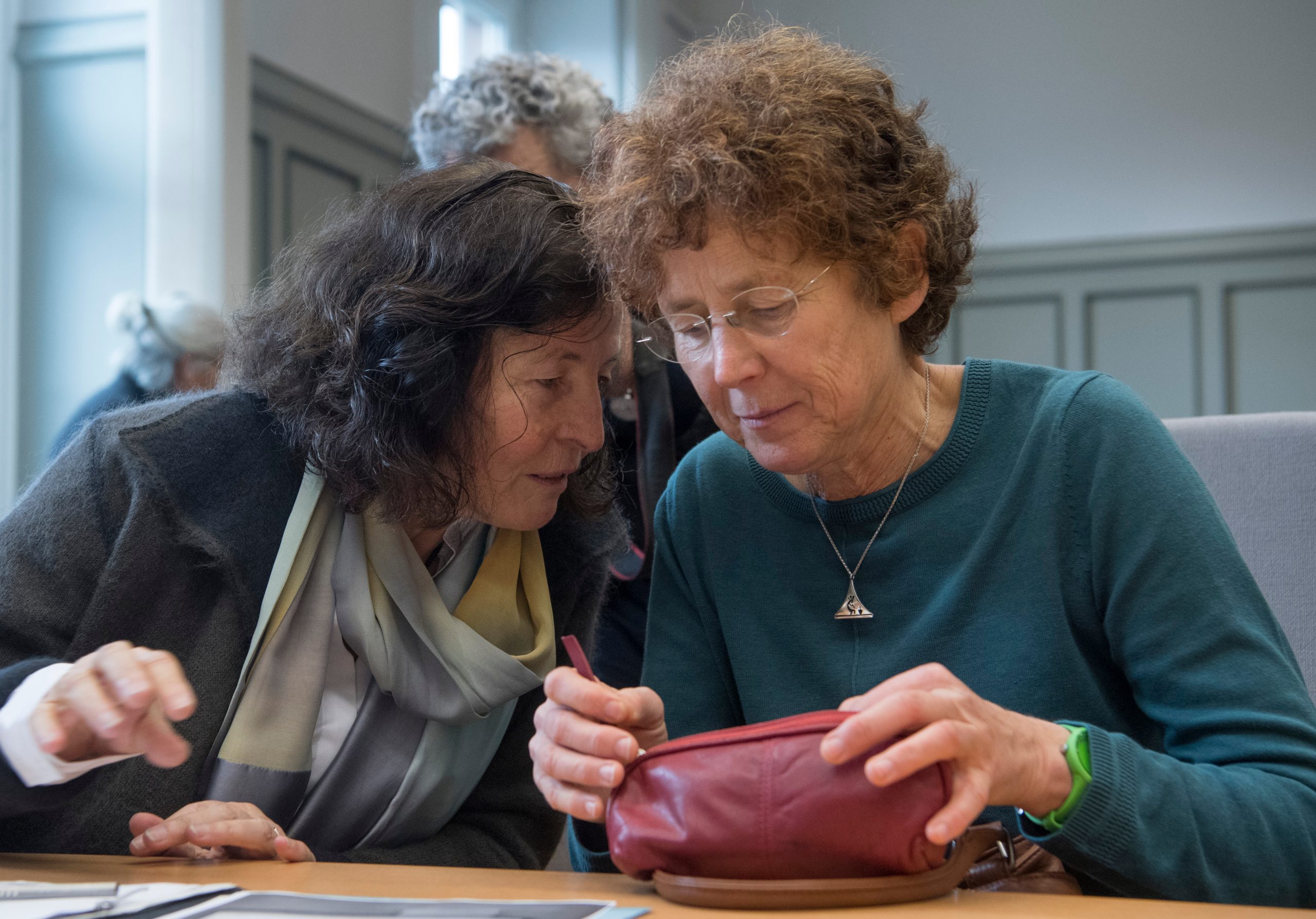Her case exposed Germany’s abortion laws for a new generation — and she’s not stopping there.
In 2017, Kristina Hänel — a wiry German doctor with kind eyes and a cool outdoorsy aunt vibe — became a cause. She’s a doctor who offers abortion services, and she, as others had been before her, was fined $6,700 (€6,000) for “advertising” the procedure on her website.
What sets her apart is the fight. Her ongoing battle against that fine, expected to go all the way to the European Court of Human Rights, has sparked a new interest in abortion rights among Germany’s younger generation. Hänel might seem an unlikely ringleader: The 63-year-old grandmother of five, who plays the accordion and rides horses in her spare time, spent her life focused on medicine, not activism. But performing abortions, particularly in modern Germany, is activism — and Hänel is the reason many people now know that.
Before the whole kerfuffle started, “we weren’t in the newspapers, we weren’t political,” she says. She’s worked for women’s sexual health her entire career, but as abortion has become more politicized she’s focused on them more. Now that she’s a rallying point for the pro-choice movement, she says, she doesn’t have time for much else. “Now we do politics and we do abortions,” she says. Many abortion clinics, she says, are not friendly and are very expensive. Taking advantage of women’s shame — and the fact that the procedure, which normally costs $220 – $1,100, is rarely covered by insurance — is a profitable game for some clinics, so she felt the responsibility to create a place women could be safe and welcomed without judgment.
“For me, it was very important to do this,” she says. “I was kind of a secret activist in my own mind, but I never thought that this would happen, what’s happening now.”
Both of Hänel’s parents were doctors, and her children have also joined the profession. Her father was a gynecologist. “I thought he was against abortion, and I never spoke with him about this,” she says. “But my cousin told me that after the war he did illegal abortions.” All abortions in the 1950s would have been illegal — and for some years in the ’40s, performing one would have been punishable by death.
More recently, abortion has been considered settled in Germany: It’s technically illegal, but no punishments are meted out for having or performing them. About 100,000 abortions are performed yearly. “It wasn’t until Kristina Hänel’s case came along that it really became an issue of public debate,” says Kate Cahoon, a pro-choice campaigner in Germany. Many young women, she says, were unaware of the implications of abortion laws on the books — for both patients and doctors. A Nazi-era law known as Paragraph 219a made it illegal for doctors to announce on their websites that they offer abortions. In February, Germany’s legislature, the Bundestag, approved a revised version of the law, which allows doctors to say they do abortions but not provide the methods used or price information.
That altered law promised a federal listing of doctors who do abortions, so women would be able to find them. Before this, some women had to turn to militant pro-life websites like Babycaust, which attempts to shame abortion providers by listing them. Some women seeking abortions, lacking information, are lured in by crisis pregnancy centers that discourage abortions.
Hänel sees the new law as a way to shut the movement up and not a substantive change. Another thing it doesn’t change: The fine against her. Her case has been kicked back to a lower court, which hasn’t decided yet — but a different abortion provider has been fined since the law was changed for making similar statements to those Hänel makes on her site. Either way, she plans to take the case to the European Court of Human Rights to get a definitive answer, but that’s expected to take years and cost thousands. “I have to change the law,” she says. “Not me, I cannot do this alone, but we have a big movement now.” She now teaches abortions to young doctors who come to the clinic, because they don’t learn to do them in medical school. 
Protesters show their solidarity with two doctors charged with providing information about abortion services in Berlin, Germany.
SOURCE TILL RIMMELE/GETTY
For Hänel, it’s not about the fine. Rather it’s the principle: People are able to get basic information when seeking every other medical procedure, so why not abortion? But abortion is becoming increasingly politicized in Germany, driven by the ultra-conservative AfD party, which is actively pro-life as part of its anti-immigration stance. One paragraph of its manifesto reads: “Mass immigration has a high potential for conflict and is not a viable economic solution. The only mid- and long-term solution is to attain a higher birth rate by the native population by stimulating family policies.” Cahoon says Germany has seen an increase in protests outside clinics where women can get abortions and an uptick in the number of prosecutions under Paragraph 219a.
“The doctors who are conscious of this problem are getting older and older,” says Eva Waldschütz, who will retire at the end of this year and has been charged twice under Paragraph 219a. She says middle-aged doctors aren’t interested in abortions as a political cause or a medical practice — “you cannot earn a lot of money and you only ruin your good reputation” — but that she’s seen a renewed interest among Germany’s new physicians under 30. At the International Safe Abortion Day protest on Sept. 28, she says, she saw just a few other senior citizens and the rest, amounting to hundreds, were young women. “When I was accused, even in my feminist gynecology group, I couldn’t get any attention,” she says.
But the uptick in charges against physicians under Paragraph 219a may actually have contributed to it being altered: Hänel and other physicians charged were able to get media attention en masse that people like Waldschütz hadn’t seen. Still, the alterations to the legal code don’t impress Waldschütz yet. Her clinic gave its address to the federal register in March, she says, and still hasn’t been added to its list of abortion providers.
“The new law? Nothing changed, nothing.”




